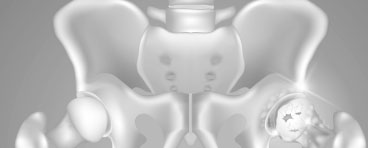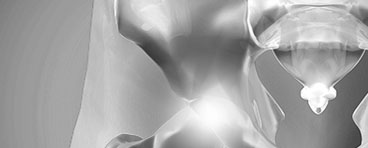Click on the links below to find out more
Anterior Cruciate Ligament Injury (ACL)
TREATMENT
A patient’s individual needs will largely determine the most suitable treatment for an ACL tear. For example, a young athlete involved in agility sports will most likely require surgery in order to allow them to return to sports with a reduced risk of re-injury. Comparatively, a less active or older individual may be able to return to a quieter lifestyle with conservative treatment.
Nonsurgical Treatment
A torn ACL will not heal without surgery. However, this is not to say that nonsurgical treatment is unsuitable. Conservative treatments may be effective for patients who lead a sedentary life or have a low activity level, or whose knees are clinically stable despite the rupture. Should the overall stability of the knee be intact, Dr Slattery may recommend nonsurgical treatment and a dedicated physiotherapy regime to retrain your knee and rehabilitate your muscles.
It is a common misconception that all ACL ruptures require surgery, and there is extensive literature to support initial non-operative management in the majority of isolated injuries. Many patients can ski, run, play tennis or sports despite being ACL deficient.
Bracing: a brace may be recommended to protect your knee from instability. To further protect your knee, you may be given crutches to help with your balance. A compression bandage can also be utilised to assist with swelling reduction.
Physiotherapy: As swelling subsides, the patient will be advised to start a careful physical rehabilitation program. Specific exercises will restore function to your knee and strengthen the leg muscles that support it. Over a phased process of strength and conditioning, gradual reintroduction of strenuous activity can be undertaken. If at any stage patients are having symptomatic instability, then surgery needs to be carefully re-evaluated.
Dr Slattery’s Non-Operative Physiotherapy Protocol can be downloaded here: ACL-Non Op Rehabilitation
Despite physiotherapy, some patients’ knees will remain unstable and may require ligament reconstruction. These will generally present within the first 3 months of the injury, or when sports are resumed.
Surgical Treatment
ACL Reconstruction Most ACL tears cannot be sutured (stitched) back together, instead requiring the ligament be reconstructed via tissue graft. To surgically repair the ACL and restore knee stability, the ligament must be reconstructed. Dr Slattery will replace your torn ligament with a tissue graft. This graft acts as a scaffolding for a new ligament to grow on.
Grafts can be obtained from several sources. Hamstring tendons at the back of the thigh are a common source of grafts, and are routinely used by Dr Slattery for ACL reconstruction. Other options are the patellar tendon, which runs between the kneecap and the shinbone or the quadriceps tendon, which runs from the kneecap into the thigh. Additionally, cadaver graft (allograft) and synthetic ligaments (eg LARS™ Ligaments) can be utilised.
There are advantages and disadvantages to all graft sources.
Because graft healing and incorporation takes time, it may be 6-9 months or more before an athlete can return to sports after surgery.
Dr Slattery has had experience treating international elite athletes, AFL footballers as well as rising stars in various disciplines and will be more than happy to discuss surgical options with you.
For further information on surgery please see: ACL Reconstruction Surgery
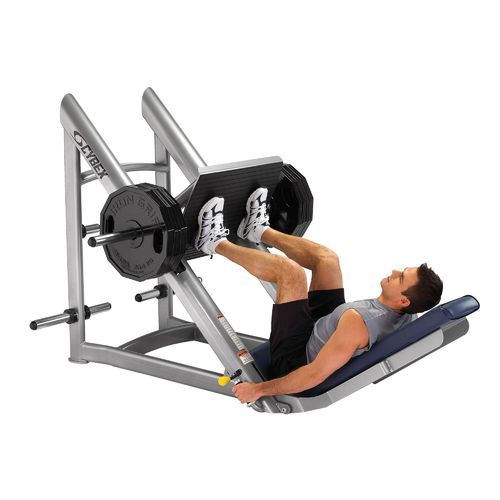
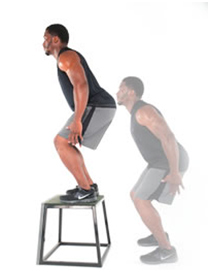
Above: Quadriceps exercises, pertubation training and plyometrics are essential for ACL rehabilitation
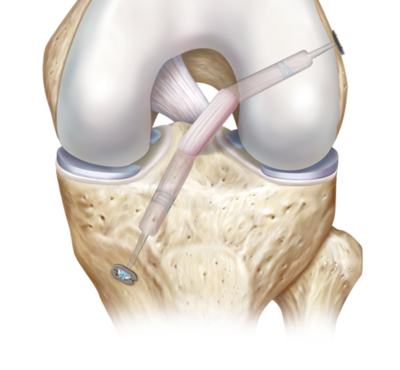
Above: ACL Reconstruction using Tendon Graft with Button Fixation on Tibia and Femur (Arthrex)
Rehabilitation
Whether surgery was required as part of your treatment or not, rehabilitation is a vital part of getting you back to your daily life. Mr Slattery has a specialised physiotherapy and rehabilitation program which has been tried and tested to get you back on your feet as soon as possible.



